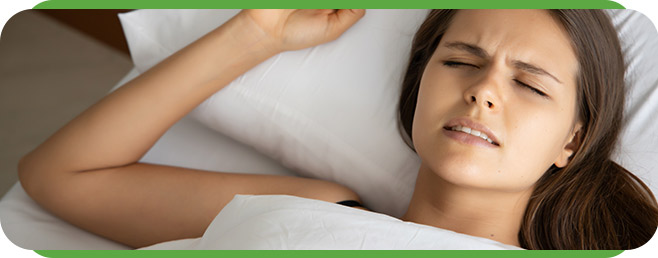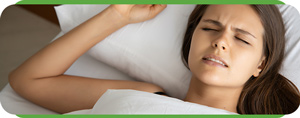Bruxism Causes & Treatment Questions and Answers
If you are suffering from bruxism, and looking for its treatment near Peoria, IL then below are common FAQ’s (frequently asked questions) to help you understand the causes and how to get treatment. Contact Koala® Center For Sleep & TMJ Disorders to schedule an appointment if you are seeking treatment. Please call us for more information or book an appointment online. We serve patients from all over the USA. Locations in Bloomington IL, Peoria – Dunlap IL, El Paso TX and Wausau WI.


Table of Contents:
How do you know if you have bruxism?
What are the causes of bruxism?
How do you stop teeth grinding?
What is the best treatment for bruxism?
What is Oral Appliance Therapy for Bruxism?
It can be hard to tell if you have bruxism because it can occur while you are asleep. Bruxism may also be a case of unconsciously clenching or grinding your teeth during the day.
Common signs and symptoms of bruxism include:
– Sleep disruptions or a major sleep problem
– Teeth grinding or clenching
– Flattened, fractured, loose, or chipped teeth
– Tooth enamel that’s worn
– Greater tooth sensitivity or pain
– Face, jaw, or neck pain, or pain that feels like an earache
– Headache in the temples
– A tight or tired jaw
– A locked jaw or a jaw that doesn’t open all the way
– Chewing damage to the inside of your cheek
Our sleep clinic has experienced medical professionals to can discuss any symptoms that you might be experiencing and offer treatment options.
There could be a number of physical, psychological, and/or genetic factors involved in bruxism.
2 common cases of Bruxism:
Awake Bruxism – When a person is awake but may clench or grind their teeth unconsciously due to emotions such as stress, anxiety, or anger.
Sleep Bruxism – Bruxism during sleep could be associated with arousals. During episodes of sleep bruxism, more force is applied which causes this condition to present serious problems for the teeth and jaw.
Stress, certain antidepressants, substance use, a family history of bruxism, and certain mental health or medical disorders could be factors. Professional attention and treatment are recommended.
The factors involved in bruxism (teeth grinding) can be addressed by our sleep medicine specialists. When bruxism is related to a sleep issue, one of our experienced professionals can provide additional tests, check for sleep apnea and other sleep disorders, and provide an appropriate treatment plan. For instance, a sleep study maybe the next step and oral appliance therapy may be the best treatment for the patient.
If you have been diagnosed with bruxism, you should consider speaking with one of our healthcare providers who specializes in sleep disorders. Treatment may be determined based on your age, overall health and medical history, and any questions you may have about how you handle specific medicines, or procedures. In some cases, effective treatment may include a dental correction, jaw muscle exercises, or medication. In other cases, we may recommend clinical treatments such as oral appliance therapy or a personalized sleep treatment program.
Oral appliance therapy is a proven treatment that is approved by the American Academy of Sleep Medicine. Sleeping conditions such as bruxism and sleep apnea has been known to be successfully addressed with oral appliance therapy. It can help prevent teeth damage, tension headaches, jaw pain, and even TMJ (temporomandibular joint) disorder, and it works by using a custom-made and comfortable oral appliance to prevent grinding and protect the teeth.
Ultimately, the best treatment for bruxism will vary based on the individual. It is important to consult with a sleep medicine doctor or specialist who can explain the benefits of suggested treatments or therapy or what is best based on your particular situation.
To speak to a specialist about the causes and treatment for bruxism, call or request an appointment online with Koala® Center For Sleep & TMJ Disorders today.

Additional Services You May Need
▸ KoalaKIDZzz®
▸ Sleep Apnea
▸ Snoring
▸ TMJ Disorder
▸ Fatigue
▸ Sleep Disorders
▸ Weight Loss
▸ CPAP Alternative
▸ Oral Appliances




